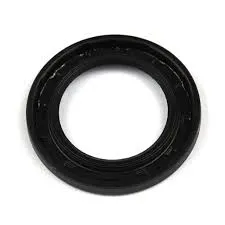8 月 . 20, 2024 19:37 Back to list
Enhanced Performance with Lip Seal Gaskets for Superior Fluid Containment Solutions
Understanding Lip Seal Gaskets Importance, Applications, and Benefits
In the realm of engineering and manufacturing, the importance of reliable sealing solutions cannot be overstated. One such solution that has gained considerable recognition in various industries is the lip seal gasket. These gaskets play a pivotal role in maintaining operational efficiency and safety by preventing leaks and contamination.
What is a Lip Seal Gasket?
A lip seal gasket is a type of sealing component characterized by a flexible lip that creates a tight barrier between two surfaces. Typically made from elastomeric materials, such as rubber or thermoplastic polymers, lip seals are designed to fit snugly within a housing and maintain contact with a corresponding shaft or surface. This configuration enables them to effectively isolate fluids, gases, and other contaminants, thus ensuring that the internal environment of machinery remains uncontaminated.
Applications of Lip Seal Gaskets
Lip seal gaskets are utilized in a wide range of applications across various industries. One of the most prominent sectors where these gaskets are found is automotive manufacturing. They are used in engines and transmissions to prevent oil leaks and maintain lubrication, which is crucial for the longevity and performance of vehicles.
In the aerospace industry, the reliability of lip seal gaskets is critical for preventing fuel and hydraulic fluid leaks in aircraft systems
. The stringent safety standards in this industry necessitate the use of high-performance sealing solutions that can withstand extreme temperatures and pressures.lip seal gasket

Additionally, lip seal gaskets are also employed in industrial machinery, household appliances, and even in the food and beverage sector, where hygiene and contamination prevention are paramount. The versatility of these gaskets makes them an essential component in numerous mechanical systems.
Benefits of Lip Seal Gaskets
One of the main advantages of lip seal gaskets is their ability to provide an effective seal in dynamic applications. Unlike static seals, which do not move during the operation of equipment, lip seals maintain a continuous contact with the surfaces they seal, allowing them to adapt to slight variations in alignment and movement. This dynamic sealing capability is critical in rotating machinery where minor oscillations can lead to significant leak paths if not adequately managed.
Moreover, lip seal gaskets are designed to reduce friction, which is especially beneficial in rotating applications. By minimizing friction between the sealed surfaces, these gaskets help improve the overall efficiency of the machinery, resulting in lower energy consumption and reduced wear over time.
Another significant benefit is the availability of lip seals in various material compositions. This adaptability allows engineers to choose the most suitable gasket material based on the specific environmental conditions, such as temperature, pressure, and the type of fluids being sealed. This further enhances the durability and lifespan of the sealing solution.
Conclusion
In summary, lip seal gaskets are a vital element in the design and functionality of various mechanical systems. Their ability to provide effective sealing in dynamic environments makes them indispensable in numerous applications across diverse industries. By preventing leaks and contamination, these gaskets contribute significantly to operational efficiency, safety, and equipment longevity. As technology continues to advance, the role of lip seal gaskets will undoubtedly expand, offering even more innovative solutions for sealing challenges in the future.